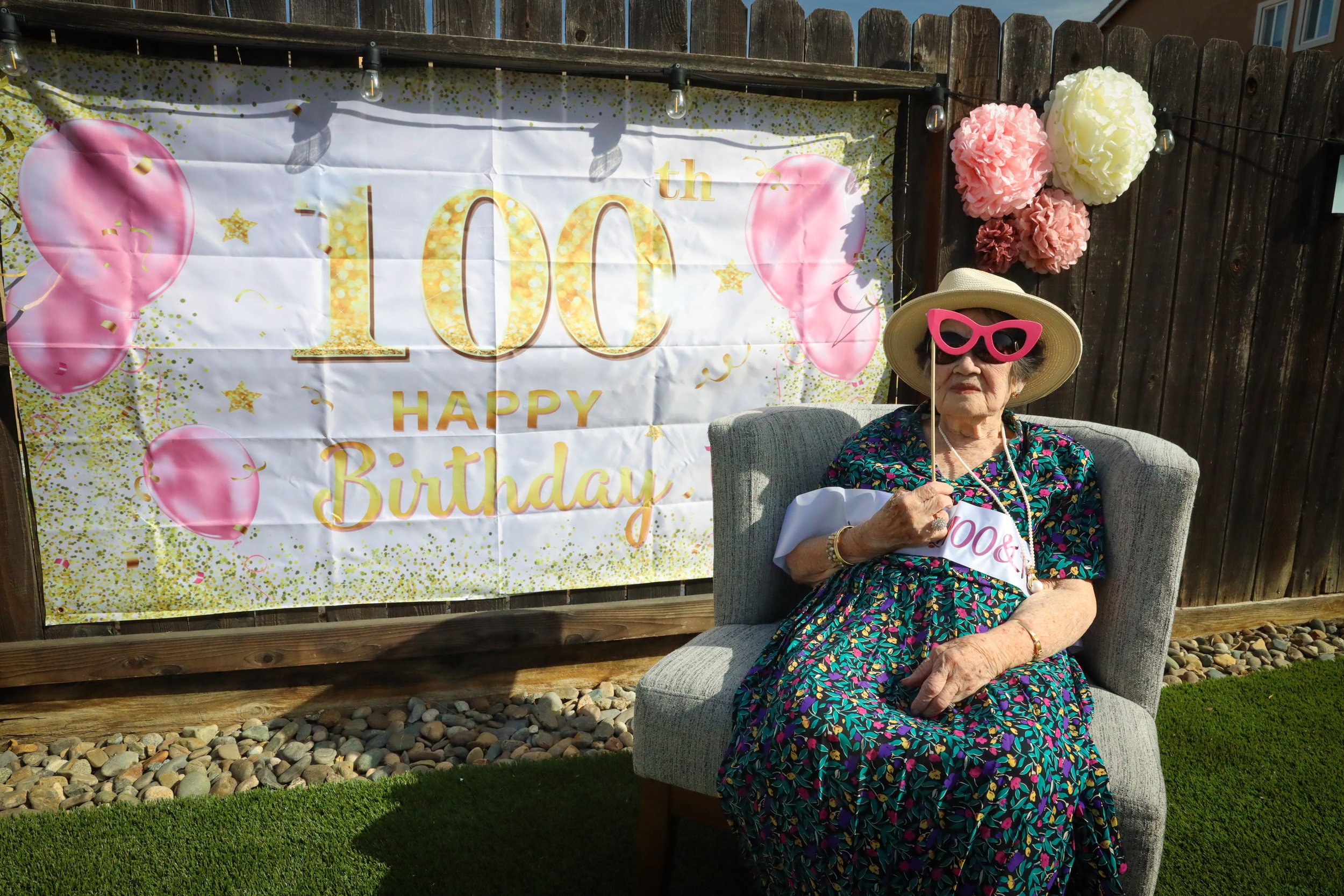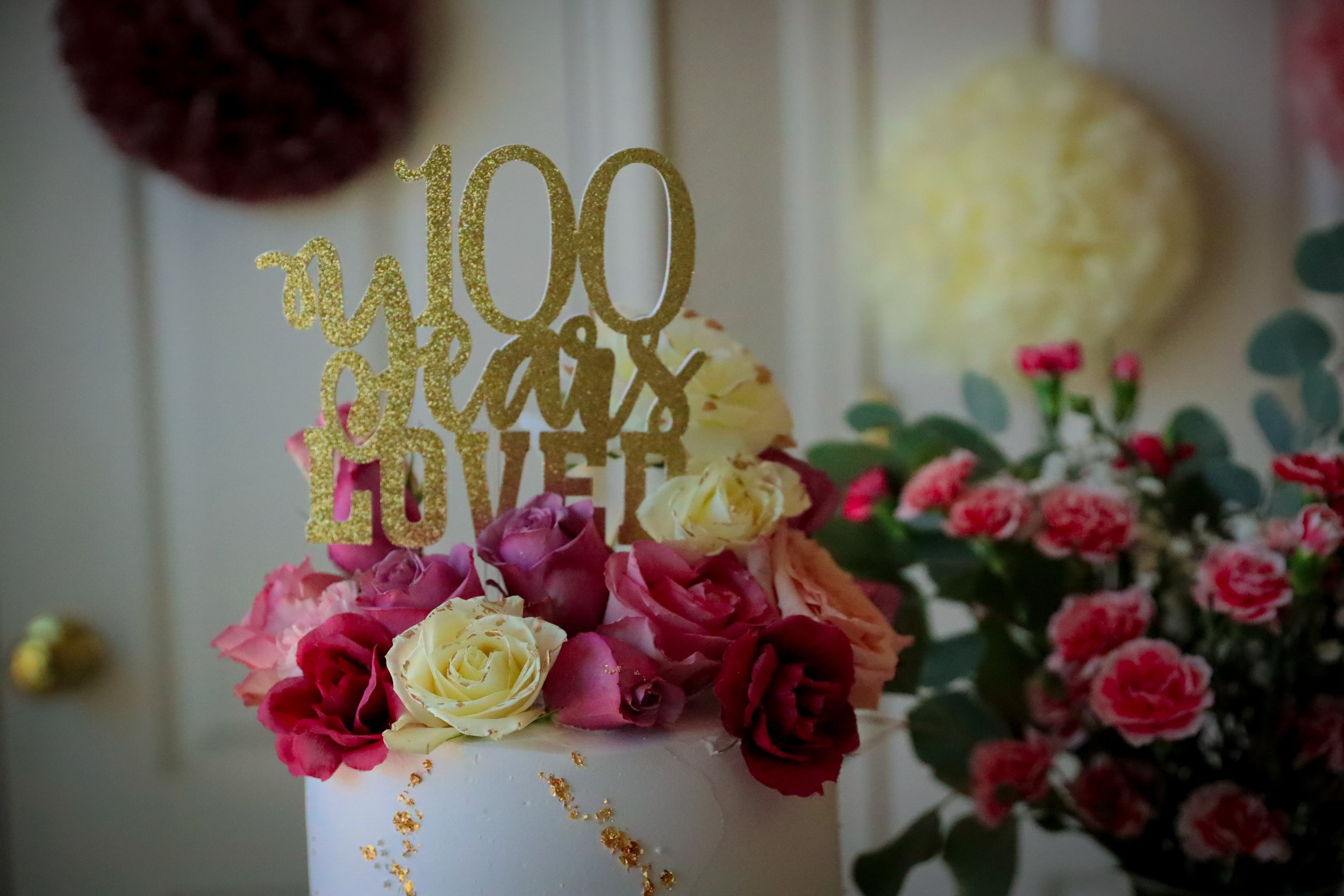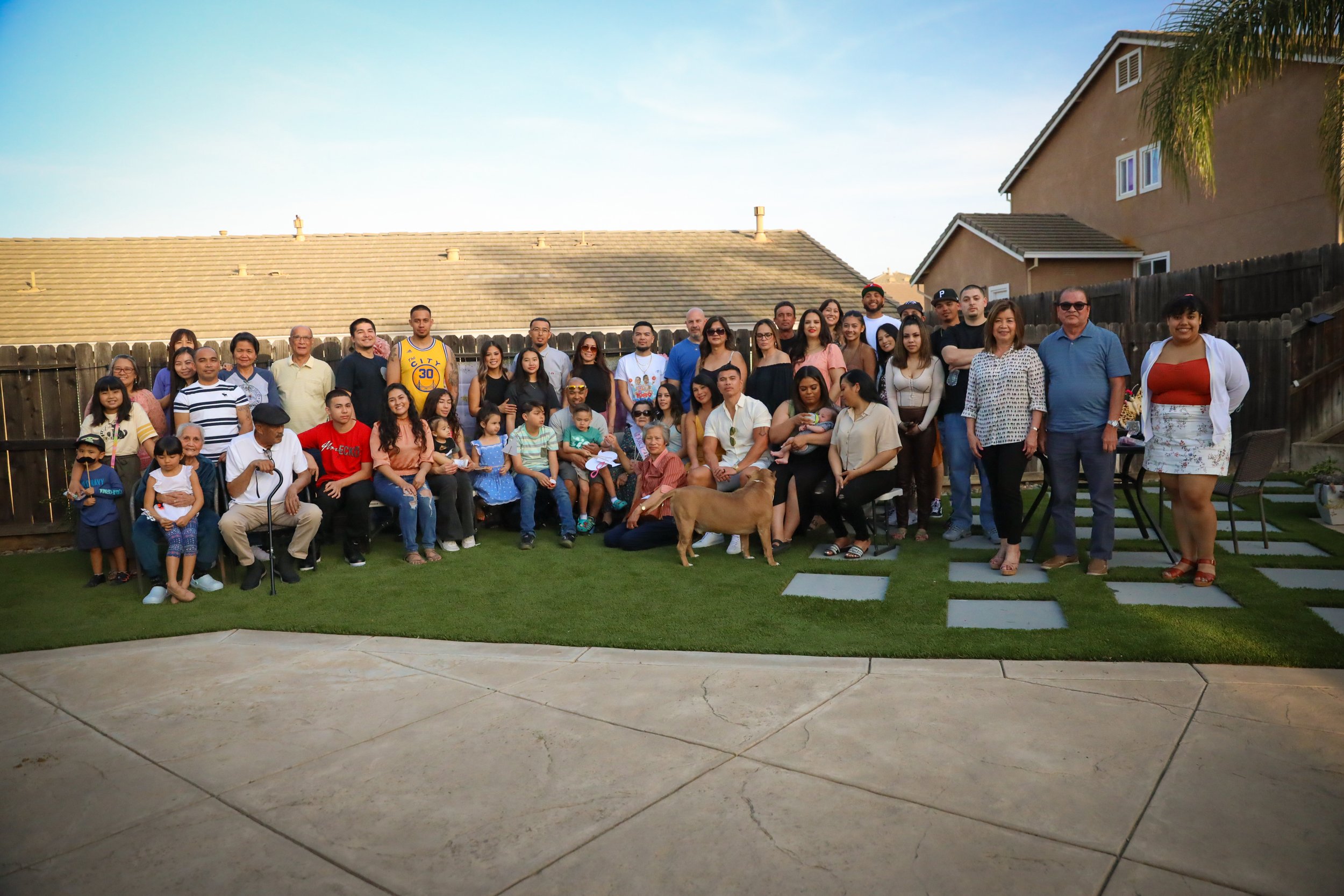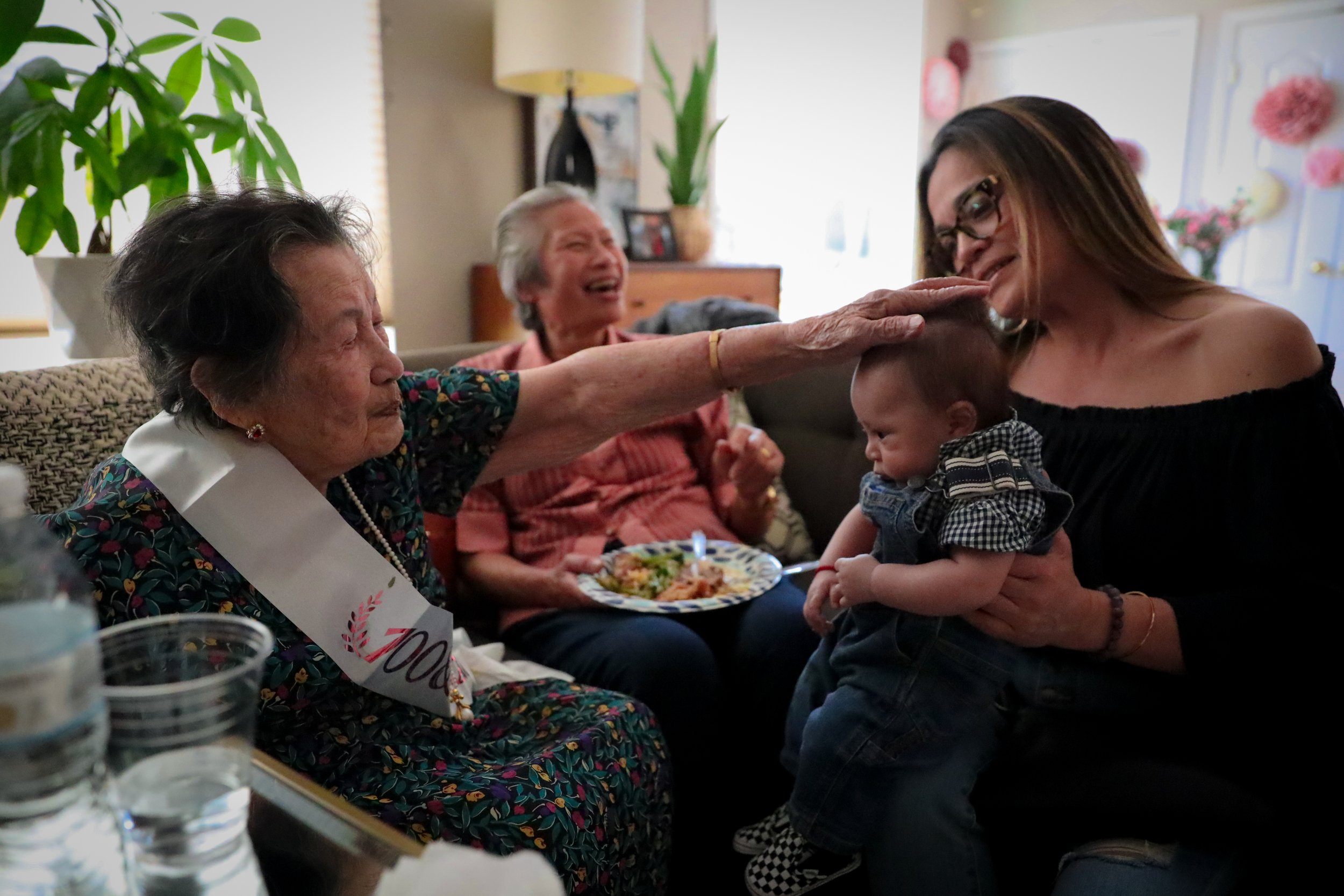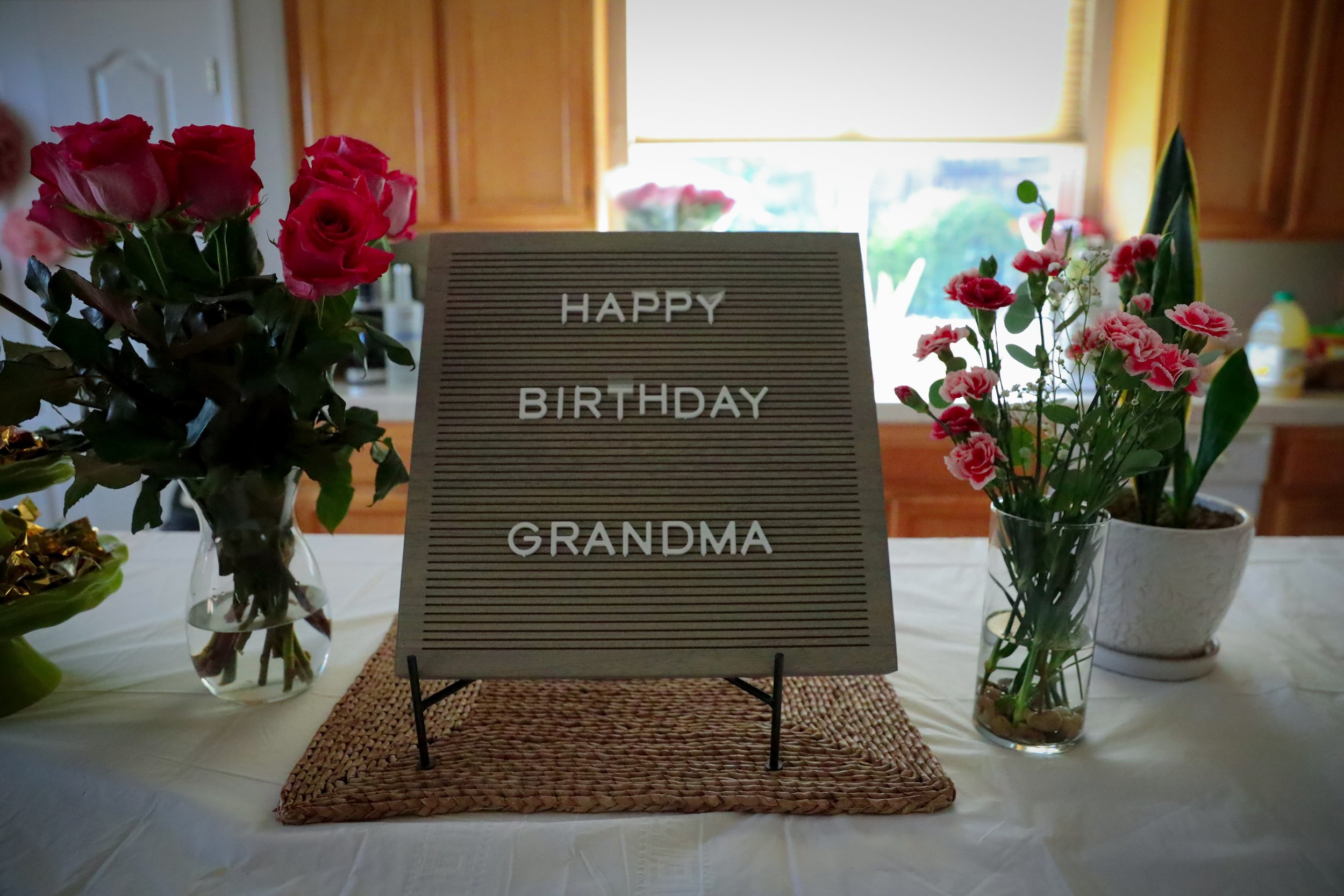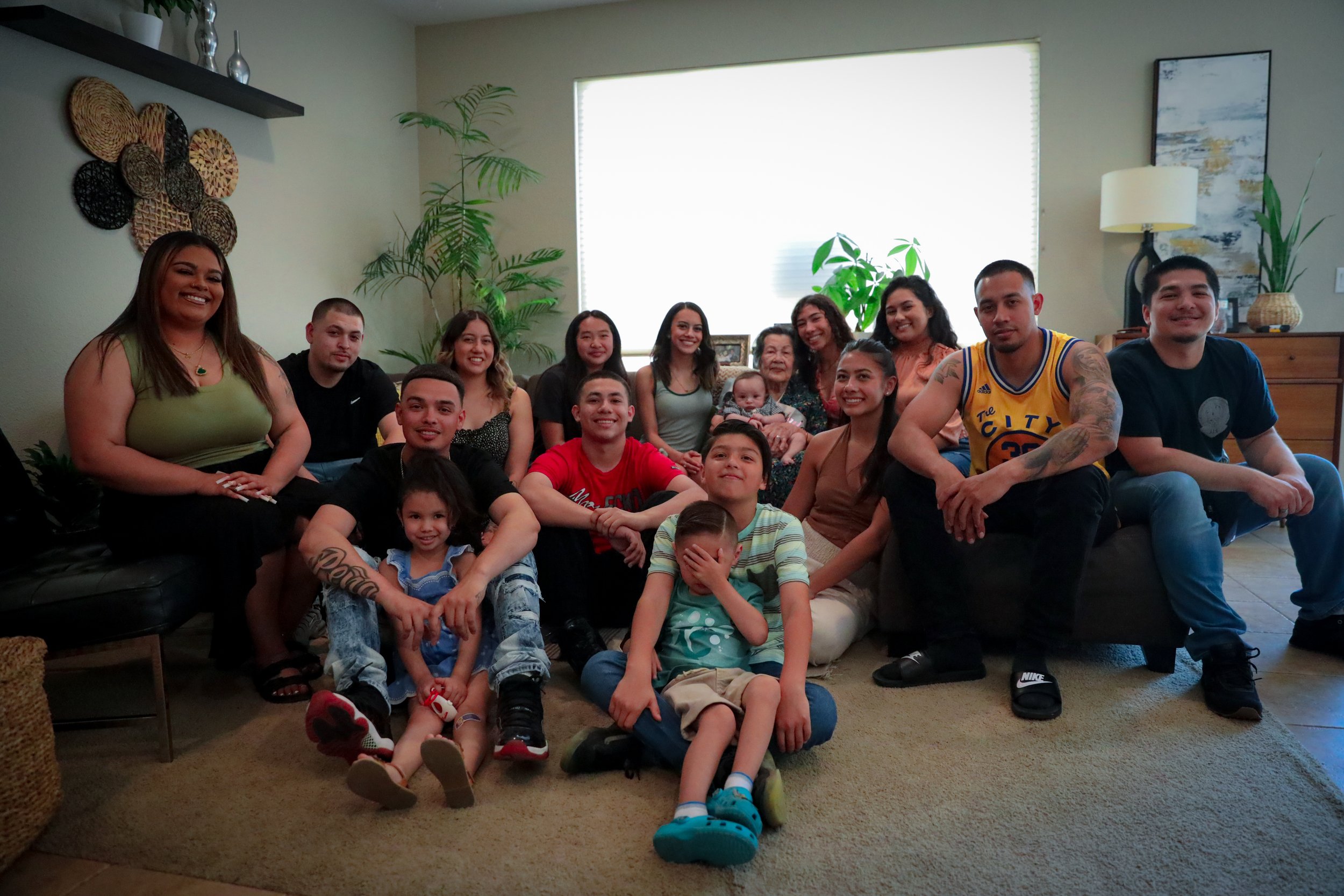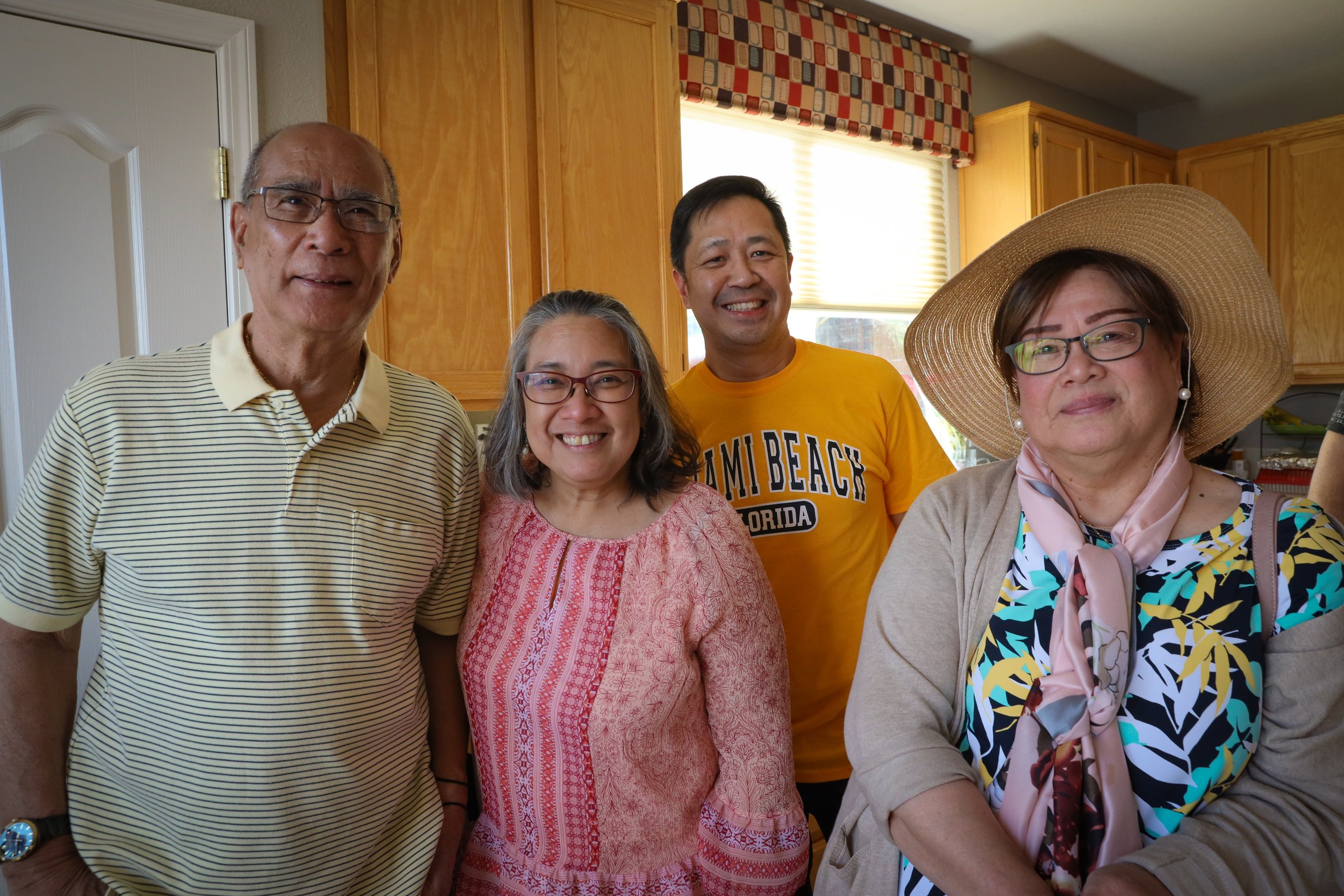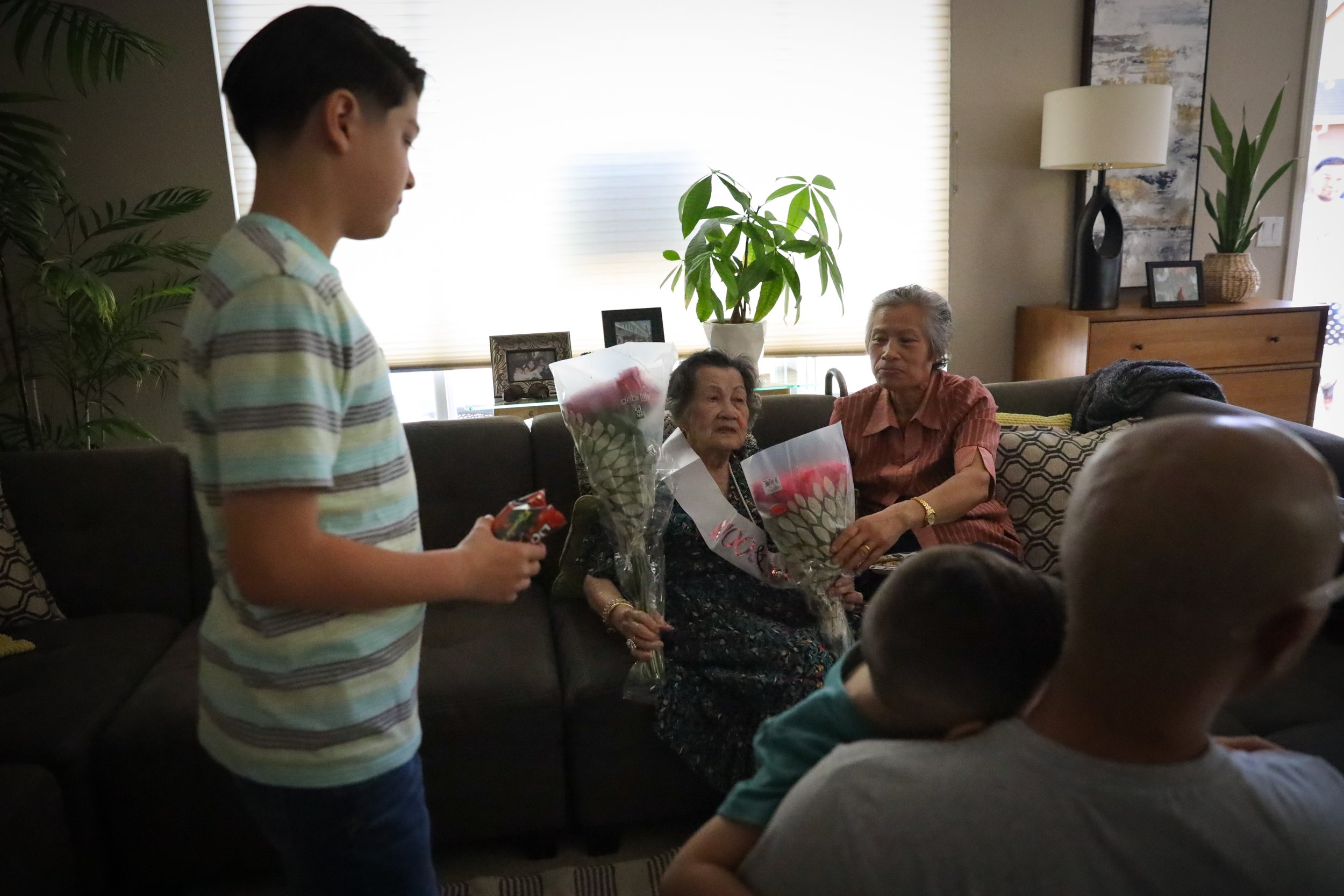Marina Chioco Peña Turns 100
Marina Chioco Peña, 99-years young, beams while holding her great-great grandchild in her arms, in the month of her 100th birthday. Photo by Erina Alejo.
Marina Chioco Peña Turns 100
Photos and collaborative writing honoring the Chioco-Peña and extended family’s matriarch, Marina Chioco Peña.
April 23, 2022
Photos by Erina Alejo. Writing collaboration by Marina’s kin: Gene, Tina, and Erina Alejo, Larry Urrutia, Casfer Chioco, Connie Fernandez. Writing is an excerpt of a living biography of Marina Chioco Peña. Sensitive information is redacted.
Happy 100th birthday to an inspiring woman– we love and celebrate you endlessly!
These photos are from the birthday queen’s party taking place at the home of one of her grandchildren. Family traveled from all over the Bay Area and across the country. A homemade, two-tier red velvet cake decorated with fresh roses was made by a friend of one of Marina’s great-granddaughters. The family feasted on Italian, Chinese, Filipino, and American foods, reflecting a myriad of everyone’s cultural backgrounds, including signature family recipes like Almond Agar Jelly & Fruit Salad and Turon (Fried Banana Lumpia with Caramel). Marina’s daughter and niece facilitated a raffle game giving away lucky red envelopes and snacks, and read aloud Marina’s living biography.
Along with Marina’s biography (scroll below), we created a family tree printed and distributed to all families (shown here is the tree with removed sensitive information for privacy reasons— family members: please contact Erina or Conchita for a copy).
Recorded in her family tree as of April 2022, Marina has five children, 11 grandchildren, 21 great-grandchildren and two great-great grandchildren. ♥♥♥
Marina’s Excerpted Biography and Photos from Her Celebration
Marina Chioco Peña was born
to Emilio Chioco and Maria Legaspi in 1922 in Barrio La Torre, Talavera, Nueva Ecija, Philippine Islands–a region renowned for its rice granaries. Marina’s ancestry is rooted in food and resistance, threading her transcontinental journey and matriarchal legacy who provides nourishment to generations of family. Her father Emilio was a rice farmer, managed the harvest of their ancestral lands, and was cousin to Juan O. Chioco (the liberation governor of Nueva Ecija after the Japanese occupation (1941-45), director of NARIC (National Rice and Corn Corporation), and a pensionado scholar who studied in Illinois during the American occupation of the Philippines (1898-1946)). Her mother Maria served the town as a manghihilot (Filipino: traditional healer) and chef, feeding the community during celebrations such as weddings and christenings.
Marina is the eldest daughter of five, surviving her older half brother Anong and younger siblings Angela, Elena "Nena", Josefina, and Ernesto "Estong". As a five year old, Marina witnessed her mother treat the townspeople for the lingering 1918 flu. At age seven, she had to stop school to help with the farm and raise her siblings. As a teen, she mastered the farming seasons and harvest of rice plants. At 14, she embraced her skills as a manghihilot through a dream apparition of the Virgin Mary who instructed her to bathe her mother in water boiled in lemon grass, curing her of an unknown illness. Marina would continue her journey as a manghihilot in the 1960s to treat community members in the San Francisco Bay Area. At 15, she trained as her mother’s apprentice, mastering the family legacy in cooking banquet dishes not limited to: caldereta, menudo, afritada, and Filipino rice desserts.
At 20, she met her future spouse, the late Leonard “Loreng” while treating him for malaria with her mother. Leonard, stationed in Nueva Ecija during his service with the USAAFE (United States Armed Forces of the Far East), had searched for a healer for his malady. Marina and Leonard married in the 1940s before his deployment to the mountains as a guerrilla soldier to fight Japanese forces. With a mid-wife’s help, Marina birthed Lorenzo, the late Andres, Lilia, and Jose “Peping” in their La Torre home. From 1955-57, the family lived in Naha Airbase, Okinawa, Japan, through Leonard’s deployment. There, Marina birthed Conchita “Connie” at Mercy Hospital. In Okinawa, Marina was thrilled to use a gas stovetop after years of using time-consuming firewood and earthenware clay stoves to cook. In July 1957, they resettled back in Talavera while Leonard served his United States Army deployment to the San Francisco Presidio. During this period, Marina’s siblings, including Ernesto, helped raise her children, reconnecting with their agrarian roots.
Marina adapted to various terrains and life-changing periods she experienced throughout the occupation, war, her migration, and raising her siblings and her own family. No matter where they lived, she ensured her family remembered their origins– she made Filipino food using local ingredients through her mastery of Filipino cuisine. For several weeks in December 1959, she and her five children rode a "Rabbit Army" ship from Fort Santiago, Manila to San Francisco, California. En route, Marina struggled to eat due to seasickness. They spent Christmas day in Honolulu, Hawaii, and arrived in a Bay Area port to reunite with Leonard on New Year’s Eve. They settled in Pittsburg, California, becoming the Chioco-Peña clan’s home for generations to come. First, they stayed with a friend, then, rented a two-bedroom apartment in the Marina before purchasing their first home and Marina’s youngest, Ida, being born. Marina easily made friends with the few Filipinos in the neighborhood, including “Badong”, who ran the sole Filipino grocery store in the region and supplied the community with cultural goods.
In 1975, the family permanently moved to their present home. Throughout this period, Marina worked in the Antioch canneries (1959-1961) packing produce such as asparagus and tomatoes. For 35 years (1961-1996), Marina commuted five days a week to See’s Candies in South San Francisco to pack chocolates. She got ready by 4am to join the vanpool of immigrant workers of color for their 5AM-1:30PM shifts. At the end of her work day, she made time to cook food and care for her growing family.
Throughout the decades, Marina nourishes the Chioco Peña and extended family with her food, home, and love. She ensures that her home serves as the landing spot for the clan– from newcomer relatives seeking to move to the US; family who need a place to stay; grandchildren who spend the day with their grandmother; and children, nieces, and nephews coming by to pick up her traditional home-cooked meals like inabraw (vegetable stew), burong kanin (fermented rice), and sinigang (tamarind soup).
Marina has a spirited and colorful collection of hats, sweaters, and natural remedies; watches Filipino teleseryes on her TV; makes phone calls to her family using her landline, and joins casino trips (pre-pandemic) with family friends organized by the church and neighborhood seniors. She continues to grace us with her wisdom, patience, unconditional love, and impeccable memory.

